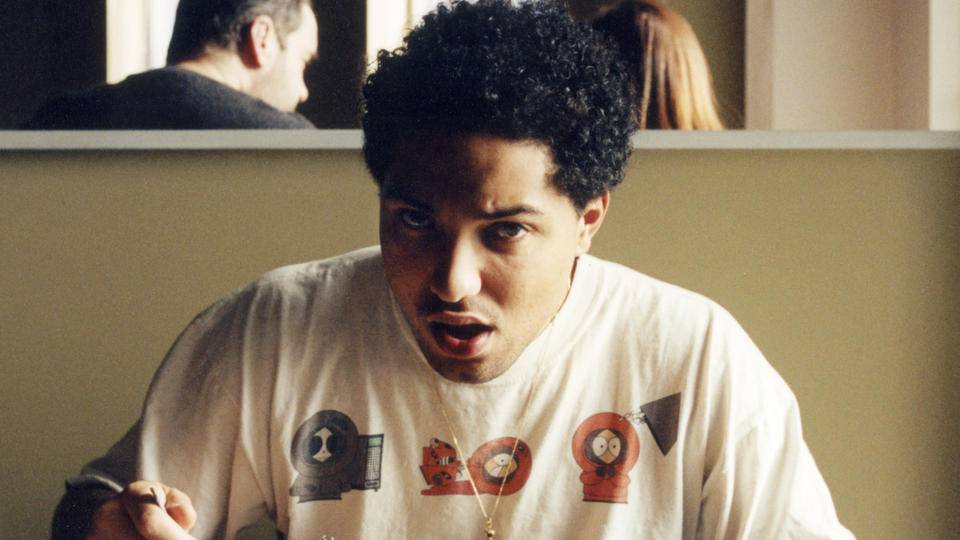Everything You Need To Know Before Running A Marathon

So you’ve decided to take the plunge and tick off ‘running a marathon’ from your bucket list. You’re ready to raise the money for charity and are having visions of yourself running alongside Mo Farah and Paula Radcliffe. The only problem is, how do you even begin to prepare of the 26.2 miles of potential hell?
Fear not, because MTV’s got you, so you can go on to live your best marathon life, injury-free.
How to train
The first thing you need to take into account is how long you’ll need to train for. Unsurprisingly, this will vary from person to person. Lead physiotherapist at Ten Health and Fitness Rob Foyster explains: “Ideally, if you can have somewhere in the realm of six months [to train] but that is dependent on how fit you are going into it. If you go to the gym five six times a week you won’t need as much time as someone who is starting from doing a 5K run.”
Right, so you’ve give yourself the time, but what if you’re prone to injury? Well, as it turns out, you’re going to need to get yourself a programme, to make sure you’re not straining yourself ahead of the big day.
“A combination of needing to get the kilometres under your feet but whether you devise a program so that one week you’re doing a long distance run and then maybe some off-loaded exercise – so pool-based work like deep water running where you’ll still be doing the running motion but not forcing the muscles and joints under so much load,” says Rob. “Again, if you’re someone who is injury-prone, it’s probably working out a programme with a professional to ease you in.”
The internet is full of marathon training plans, for everyone from absolute beginners to almost pros. If you’re a total newbie, it’s best to get a programme that’s tailored to you – you can find a qualified running coach who’ll work with you all the way through. We love Sam Murphy and Running With Us, but there are loads out there. Have a Google and find someone you can work well with.
How to avoid injury
Despite taking precautions, the odds are that you may well face an injury due to the repetitive nature of running. You’re also going to face post-run soreness if you’re new to the sport. Rob advises that the key is to understand the difference between the two.
“You would expect if you are trying a new sport to have some post-exercise soreness. But my general rule is it shouldn’t be there for more than 48 hours afterwards,” he explains.
“I think if you do have post-exercise soreness it’s important that you do your appropriate post-exercise routine of some stretching, some foam rolling and just making sure that you release tight muscles. Don’t go and try to train again. Everyone has a programme that they want to stick to. If you are sore, running on soreness when it’s a new thing, you’re not sure whether that is post-exercise soreness that will dissipate or if you have just done something a little too much.”
Many of us have muscular weaknesses we’re not aware of in our day-to-day lives, but the intense training a marathon requires can show these up in even the strongest of runners. In many cases, it all comes down to core stability.
Rob says: “Often there is weakness or instability around the pelvis or the trunk. For females in particular their pelvises are shaped in such a way that they’re pre-disposed for their thigh bones to point a little bit inwards and therefore they can get knee pain. It’s not that men don’t get that either, you hear of runner’s knee and it’s really common when we overload on the outside of our legs. Because we are weak on the outside through the core and through your abdominals.”
Before you start putting in the training miles, go to see a physio for some prehab – this will flag up any potential weak areas and let you know how to take on the task ahead.
“An assessment is a holistic look at your life and going into ‘what’s your diet like, what’s your sleep like’ - there are so many things that prehab encompasses,” Rob explains.
“It’s not purely ‘here’s a bunch of exercises, go and do them’. And I think that’s what most importance before going into something that will put your body under so much strain.”
Many are put off by the idea that marathon training can take over your life. And while it will certainly take dedication, Rob does offer a beacon of hope to those who still want to maintain a social life alongside their running.
“Like any commitment you need to be prepared to put the time in because you’re going to be running for a solid number of hours,” he says. “You’re going to have to be prepared on a weekend to do a long run. But it doesn’t mean you can’t have a work/life balance.”
What to eat and drink in training
Everyone’s heard the myth about carb-loading with mountains of pasta before each run, but don’t worry – you don’t need to go all Man vs Food. Before a morning run, make sure you’ve had a decent breakfast that fills you up but doesn’t upset your stomach. Peanut butter toast and porridge are popular options. The night before a big run, you might want to have a slightly bigger dinner than usual, but there’s no need to go overboard. Eat until you feel comfortable and avoid anything you know might make you feel dodgy!
During runs over 90 minutes to two hours, you’ll need to take on additional fuel. This can come in the form of energy gels, sports drinks or sweets such as jelly babies. Try out different options in training and find what works best for you – it may take some experimenting until you find a choice that really works. Also try to drink regularly as you run, taking on water little and often. Don’t force yourself to drink loads or avoid it altogether – there are health risks associated with both overhydrating and underhydrating.
After a training run, you may not be hungry immediately. Try to take on some protein and carbs within an hour of finishing though. Protein shakes can work for some, or just a meal with a serving of protein in it. This will help kickstart your recovery after getting those miles in.
As your training ramps up, so will your runger – that’s the gnawing, insatiable post-run hunger that’s impossible to ignore. Don’t panic if you’re having to eat more than you usually do – listen to your body and if you need to eat, eat.
Where to stay
On the weekend of your marathon, it’s best to stay near the start or finish line so you can have an easy transition to and from the event. After 26.2 miles of running, chances are you won’t fancy an awkwardly long commute home! If you’re doing a big event such as a Marathon Major (London, New York City, Chicago, Berlin, Boston or Tokyo) you’ll also have to pick up your bib from the race expo, so you may want to arrive a few days beforehand. This also means you can squeeze in a little sight-seeing if you fancy it.
Depending on your budget, you may choose to stay in an AirBnB, a hotel or a hostel. Bear in mind that all of these options book up very quickly, and often hike up their prices for race weekend. If you’re sharing with friends, an AirBnB or hostel can be handy, but it’s best to avoid sharing with strangers. If you’re in the city to run a marathon and your roomies are there for a big weekend of partying, you’re not in a situation where you’ll get the rest you need before a big run!
If you want to keep things simple and organise your accommodation and travel in one go, Sports Tours International offer packages for marathons including the Marathon Majors plus Rome, Paris, LA and more. You’ll be put up in a hotel in your marathon city, and depending on the package you go for you can also get flights, transfers to the race expo and race start and have breakfast included in your stay. They also allow you to book your spot at certain races through their packages too. So easy!
How to recover afterwards
You did it! Once you’ve staggered through the finish area and collected that all-important medal, it’s time to celebrate and recover. Like your runs in training, try to eat something with protein in once your stomach can handle it and get a bit of rest. There are often massage areas in the race village after you finish, which are worth a visit but bear in mind you may have to queue.
You might want to celebrate with a cheeky pint/glass of prosecco/cocktail. That’s fine, but try not to drink too much as you may be dehydrated. Try also having water plus some rehydration tabs to replace any electrolytes you’ve lost through sweat.
Sleep and food are your best friends in recovery, and you probably won’t have much trouble getting the former! Book a couple of days off work or uni so you have time to rest up and get back to your best.
Within a few days, when your legs have had a chance to settle, try having a sports massage or do some stretching and foam rolling at the gym. This will help release any tight spots in your muscles and help aid your recovery.
So there you go – a super quick guide to everything you need to know about doing a marathon. Good luck!
'Words by Chris Smith and Georgia Scarr'





